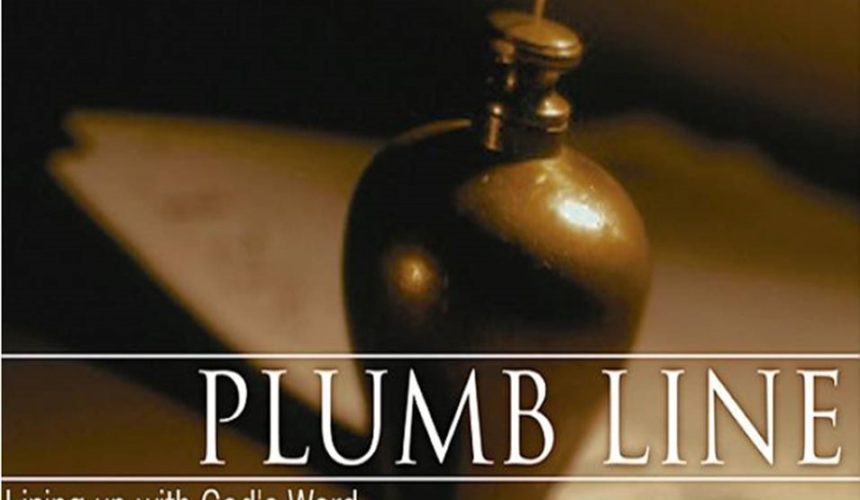THOUGHT FOR THE WEEK – compassion, service and sacrifice
In the readings this week we find the powerful metaphor in Amos of God’s plumb line – the measure of God’s people and their faithfulness to God’s purposes.
Then, alongside this, the Gospel places the parable of the Good Samaritan – clearly the plumb line measures things differently from how we normally would!
So, the question is how do we measure our spirituality, our faithfulness to Christ and our living of God’s Kingdom principles and values?
Once again, we are reminded that God measures not by success, or power or money, but by compassion, service and sacrifice.
Indeed, our sins and indifference are clearly and vividly illustrated in the passages from Amos and Psalm 82.
The Psalm echo’s these words in contrasting songs as well – judgment on oppressive and unjust rulers; blessing on the one who prays for God’s guidance and the strength to follow God’s commands. On the other hand, we have the way to life explained clearly and powerfully through the association of the Great Commandment with the parable.
The message is strong and clear – God asks one thing from God’s people: to be people of love, mercy and justice. And, when we embrace this call, we will, inevitably, know better relationships, and more peaceful and prosperous societies – not so much as a reward, but as a simple consequence of the work of love and justice that we have done in God’s strength.
Essentially, in his prayer, Paul celebrates the way this has already happened for people who have responded to the Gospel, and prays for ongoing strength for the Colossian Church to continue to live this way and enjoy the fruit that such a life brings.
Paul reminds us that Christ has mercifully “rescued us from the power of darkness” (Colossians 1:13), with forgiveness and redemption, and with wisdom and understanding to know the Lord’s will: to love our neighbour just as we love ourselves.
If the plumb line is the sign of God’s measurement of God’s people, the Good Samaritan is the picture of what the plumb line is actually measuring.
“Who is my neighbour?”
It’s such a deceptively simple question.
In answer, Jesus gives us the beloved story of the good Samaritan, one of the most profound examples of how we should live out our faith in all of Scripture.
By nature, we are more like the two who passed by the beaten man on the other side of the road.
This story of the Good Samaritan reinforces the meaning and purpose of parables. It also highlights some important interpretative elements.
The story of the Good Samaritan is a parable Jesus told to challenge his listeners to reflect on the nature of the Kingdom or Reign of God. Who is it who is worthy to belong? Are there certain groups who are more worthy than others? What do I need to do to come home – to be part of the Reign , the Kingdom of God?
By telling this parable, Jesus overturned the world and expectations of his listeners. By making the Samaritan the one who does God’s Will, Jesus reinforces the concept of inclusivity and openness. The Kingcom is not an exclusive club for a few, it is an open invitation to all.
What questions can we ask:
What will happen if I stop and help?
What will happen to the hurt person if I don’t stop and help?
What if I don’t stop?
Love and Fear
There are only two feelings.
Love and fear.
There are only two languages.
Love and fear.
There are only two activities.
Love and fear.
There are only two motives,
Two procedures, two frameworks,
Two results.
Love and fear.
Love and fear.
May our worship stir us this week, as we invite God to measure you against God’s standards of grace and mercy.

